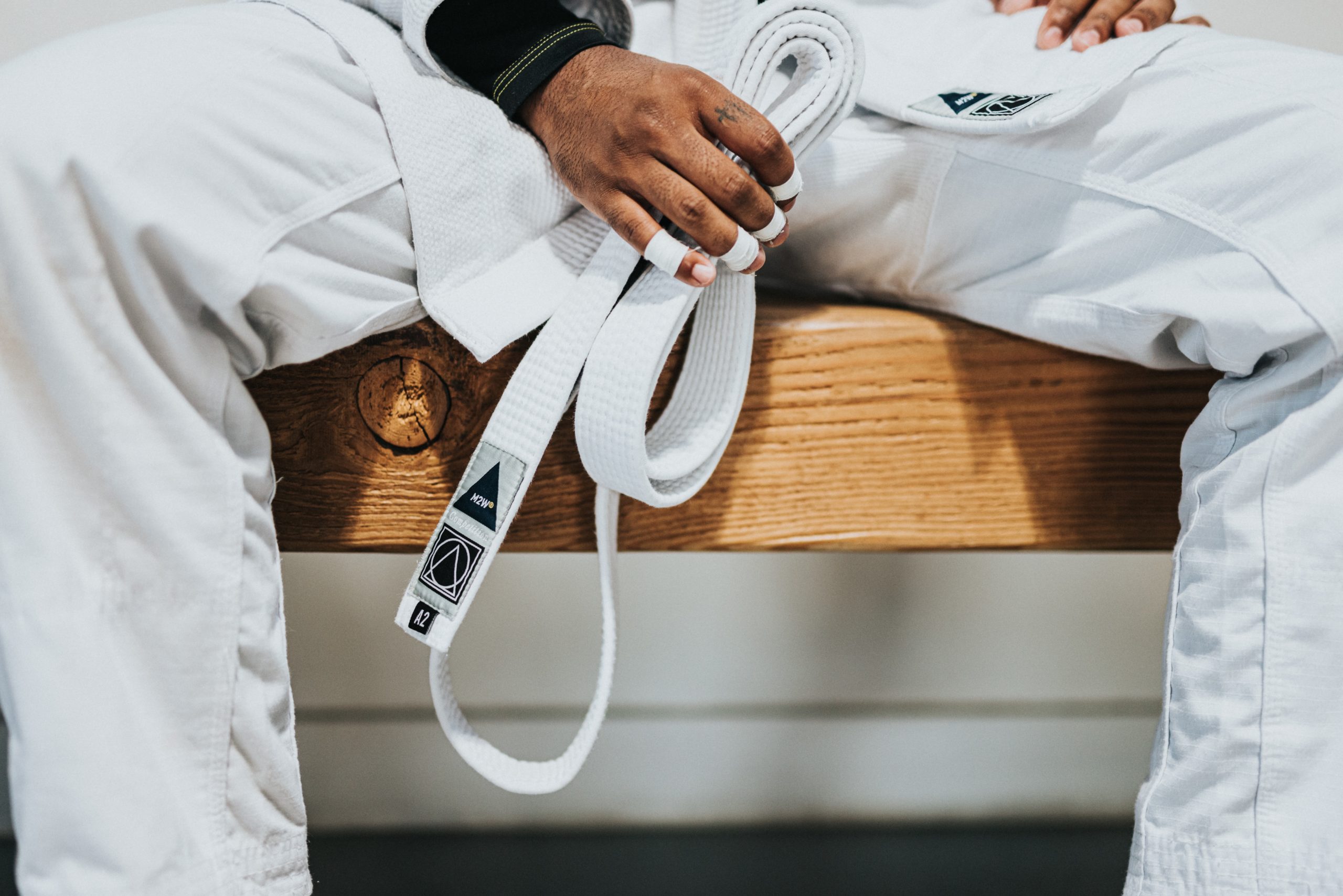

5 Tips To Avoid Burnout When Practicing Brazilian Jiu-Jitsu
Whenever students get into the rhythm of Brazilian Jiu-Jitsu training, life is perfect. Submissions come with regularity. Energy levels are as high as the mood in the academy. As well, students reach a degree of technical proficiency unfathomable when they first donned their gis.
This is the honeymoon stage of being a Brazilian Jiu-Jitsu student. Past this honeymoon phase, everything either deteriorates or goes stale. Submissions fail. Going to practice is a chore, and tying a belt takes a few seconds longer than usual.
This is not uncommon in Brazilian Jiu-Jitsu. In fact, it’s a ubiquitous phenomenon across many athletic endeavors. Referred to as burnout, it discourages many students of Brazilian Jiu-Jitsu, making other sports or laziness seem more appealing and productive.
Luckily, there are ways around this. First, it’s important to know when burnout is taking place. Let’s kick off the discussion with a discussion of burnout and fatigue!
It’s Not Laziness: The Signs of Burnout
Training Brazilian Jiu-Jitsu is like training in other sports in the sense that training involves exposure to stress. Stress — whether mental or physical — isn’t always a bad thing. In fact, strength and conditioning research has shown time and time again that there’s a healthy dose of it. It’s the job of every coach to dose training correctly to elicit the right physical response.
Stress and recovery bring about the desired responses to training — whether it’s lifting a heavier weight or being automatic with the triangle. Unfortunately, there comes a point where stress builds, but the capacity to recover doesn’t follow.
This is when burnout and fatigue occur. When too much training takes place at the expense of recovery, injuries and de-motivation follow shortly — the opposite of why anyone enters the academy.
What does burnout look like in Brazilian Jiu-Jitsu? Here are the tell-tale signs to look out for:
Decreased Motivation to Train
De-motivation isn’t uncommon. In fact, it’s normal to a point. However, when the lack of motivation to train persists for more than a couple of weeks, it might be time for a break.
Often, a lack of motivation is the body’s way of saying that even the nervous system is fatigued. A fatigued nervous system is not something to scoff at. It can lead to a laundry list of negative adaptations like hormonal imbalances and reduced muscle activation.
A General Feeling of Exhaustion
Along with a lack of desire to train is a general feeling of just being run to the ground. Granted, trainees experience exhaustion in different ways. The most common complaints include muscle soreness that lasts for a week, an inability to focus, and poor sleep.
Decreased Performance on the Mats
A lack of motivation followed by training fatigue is sure to translate to a poor mat game. Whenever students experience prolonged muscle soreness, they execute moves poorly. Worse yet, an inability to focus inhibits learning in the academy, adding to the list of sloppy moves on the Tatami.
Injuries Galore
Injuries occur as a result of overuse. When students train in the absence of adequate recovery, inflammation accumulates in the muscles and joints. After continued usage past the point of inflammation, it’ll only be a matter of time before something snaps — and it doesn’t need to be from a submission.
5 Ways To Choke Out Burnout
As soon as the signs of burnout appear, manage training fatigue using these five actionable steps:
1. Get More Sleep
Sadly, many trainees don’t get seven to nine hours of sleep every night. It’s no surprise that many of them start complaining of burnout or fatigue after the fourth week of Jiu-Jitsu training.
For both elite-level and beginner practitioners of the sport, sleep needs to be part of an overall recovery strategy. In fact, it needs to be the cornerstone of one.
Sleep is when the muscles recover and rebuild after a long day of work, school, and mat work. More importantly, it’s a time for the nervous system to recharge and reset for another day of work.
2. Dial-in Nutrition
This isn’t just important in Brazilian Jiu-Jitsu. It’s vital to every sport. Nutrition is another pillar of any recovery strategy. Without it, trainees would accumulate training fatigue faster.
Optimizing food intake means different things for different people. For athletes, a good rule of thumb is to consume a diet of whole foods like on the Helio Gracie diet. It’s also a good idea to keep alcohol to a minimum, and the same goes for simple refined sugars.
When it comes to protein, trainees shouldn’t get too hung up on supplementation. After all, it’s all about fueling for Brazilian Jiu-Jitsu training and competition — not winning the Olympia.
Contrary to popular belief, fats need to be in your training diet. Of course, these need to come from clean sources like egg yolks, nuts, and avocados. Fats are the building blocks of hormones and are necessary as a secondary energy source.
All in all, by eating foods that don’t come from a packet, the chances of burnout drop dramatically.
3. Rest Days — Take Them
Many beginner and intermediate trainees fall under the spell of training day-in and day-out. Indeed, this is possible — whether it’s healthy and sustainable is a different story.
Fatigue isn’t something that occurs after training. It’s accumulative. It builds over weeks and months, piling continuously with hours of drilling and rolling. To maximize recovery, resting a day or two is a must.
Rest isn’t for the weak. Trying to do without it can and will make anyone weak.
4. Listen to Your Body
The body is an intuitive piece of machinery. It abounds with feedback mechanisms, sending tangible (yet often ignored) signals of when to push and when to back off.
Trainees need to be in tune with their bodies, paying attention to every change no matter how subtle. Every change in the resting heart rate to the sensation of thirst is a sign that it’s time to put down the gi and take a breather.
5. Make the Hard Work Fun With Variety
In reality, training fatigue isn’t always a physical thing. For some, it’s all mental — and that’s okay! For this group, training stress isn’t the problem — monotony is.
Solving this problem is easy. All trainees need to do is add some variety to the hard work they put in. Students of Brazilian Jiu-Jitsu can introduce training variety in many ways. Some visit other academies for a change of scenery and training partners. Others master different submissions.
Whatever form novelty takes in training, it’s sure to provide that much-needed dopamine hit to a trainee. The variety reinvigorates training and expands the student’s horizons, also mitigating the effects of burnout.
Bonus Tip: Leave, But Only for a While!
It’s as the saying goes: “Absence makes the heart grow fonder.”
It’s a hard pill to swallow for some students, but Brazilian Jiu-Jitsu is like all things beloved — it’s worth taking time off from it temporarily.
By being away from the academy and the mats, students can rest, recover, and miss Brazilian Jiu-Jitsu. After a short sabbatical from the academy, trainees will have recovered, chomping at the bit to roll on the mats once again.
Train. Recover. Improve.
Olympic weightlifters at the highest level mentioned the secret to peak performance. According to them: “Be impatient with recovery and patient with progress.”
This is also true in Brazilian Jiu-Jitsu. Training is cyclical, ebbing and flowing between stress, recovery, and adaptation. Improvement takes place only after full recovery from the stress of training. Without recovery, fatigue builds, and the athlete burns out.
Are you into evidence-based Brazilian Jiu-Jitsu training that invigorates more than annihilates? Try a free week with us at Granite Bay Jiu-Jitsu!
Advertisements
gbjj
RELATED POSTS










